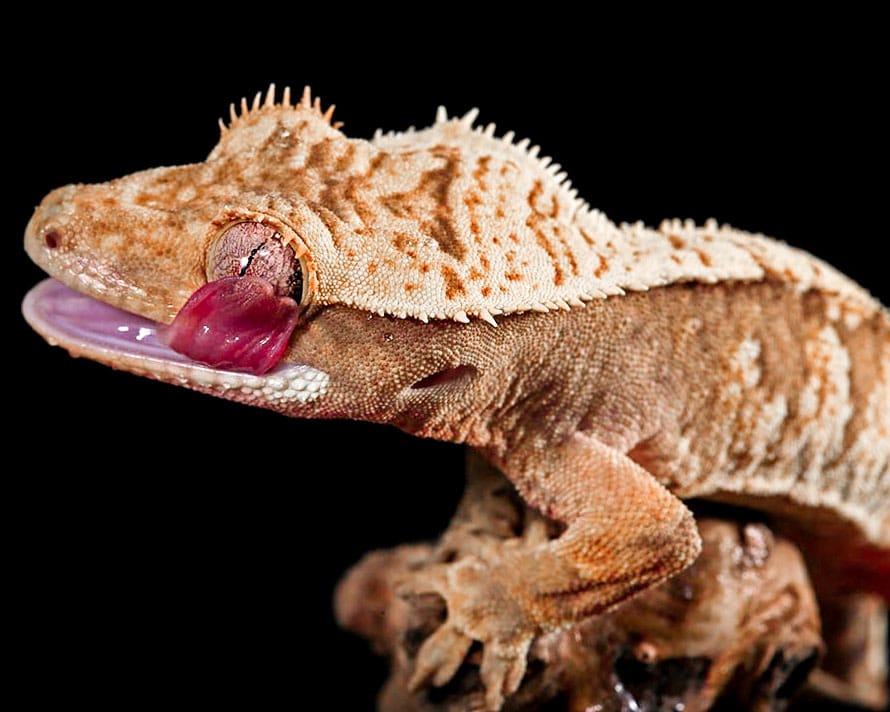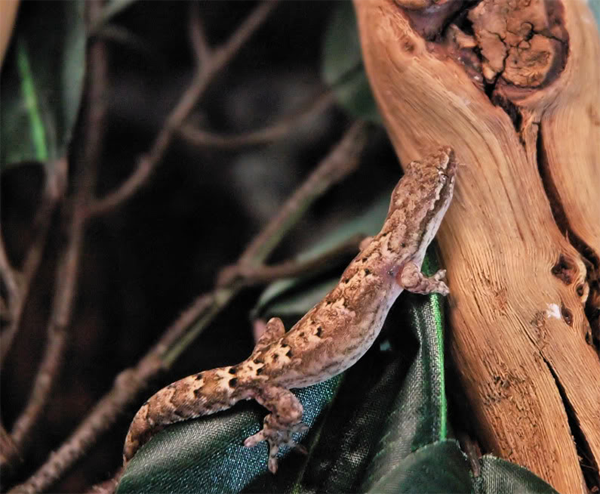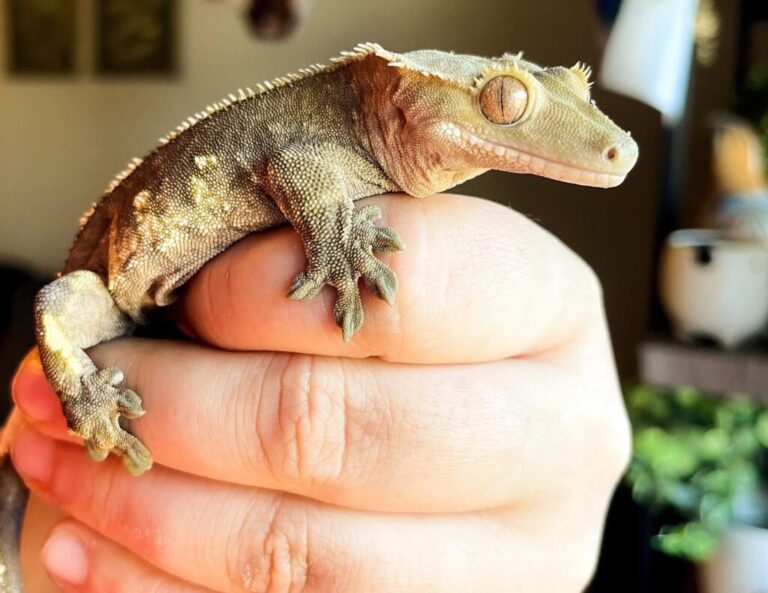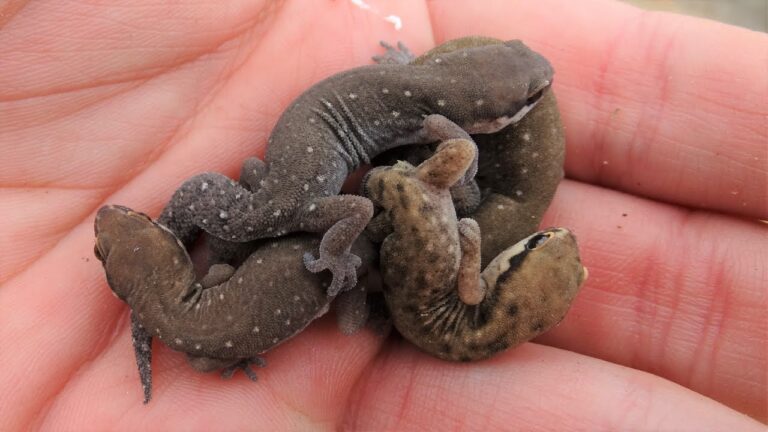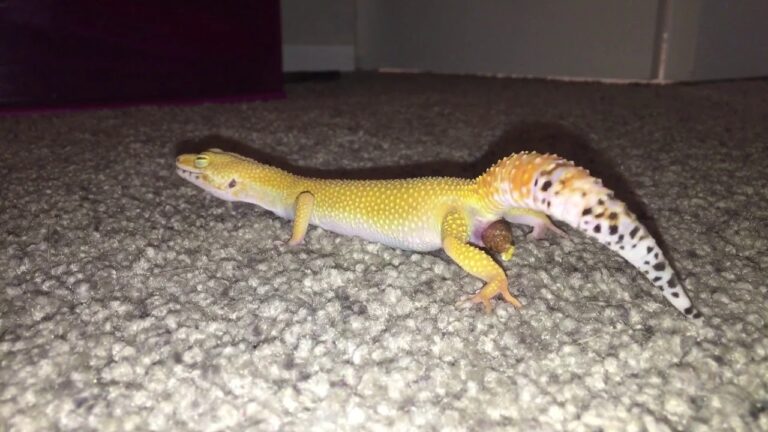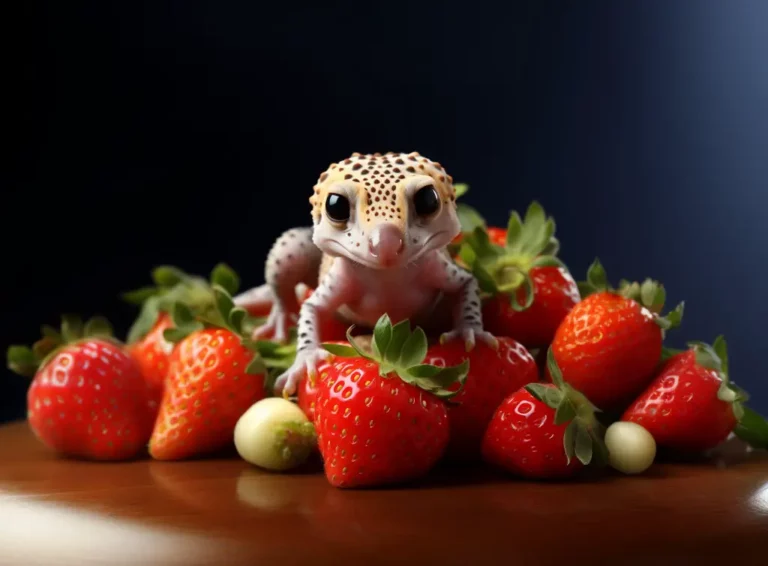Are Crested Geckos Friendly? The Enigmatic Charm Of These Remarkable Reptiles
As I cautiously extended my hand toward the lush foliage in my vivarium, I couldn’t help but wonder, “Are crested geckos truly friendly creatures?” It was a question that had piqued my curiosity since the day I welcomed these enigmatic reptiles into my home.
Like many reptile enthusiasts, I had heard tales of their gentle demeanor and captivating personalities, but I needed to experience it firsthand.
So, I found out the answer,
Yes, crested geckos are generally friendly and can tolerate handling. They have a soft, velvet-like texture, making them enjoyable to touch. They’re also known for being somewhat active and curious, often looking for things to climb on.
Let’s find out if crested geckos are as friendly as they say!
How are Crested Geckos with other animals and children?
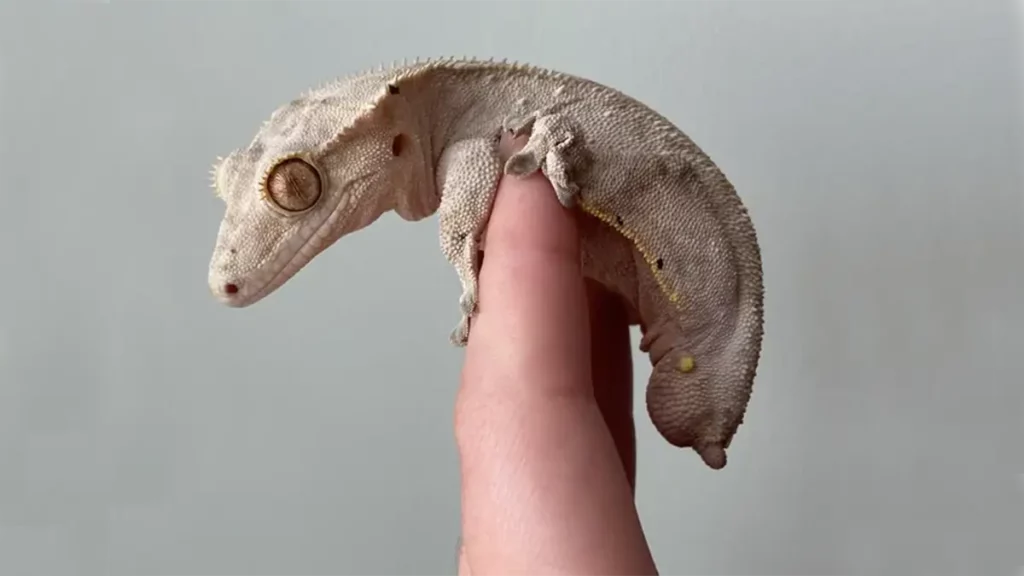
Handling by Children:
They are small and delicate creatures, so they should be handled with care, especially by young children. Rough handling can cause stress and potentially harm. It’s important to supervise interactions between children and the gecko to ensure that both are safe.
Allergies:
Some children may be allergic to reptiles or their shed skin, so it’s essential to be aware of potential allergies before bringing them into a home with children.
Other Pets:
If you have other pets, such as cats or dogs, you should be cautious when introducing them to the household. Some dogs and cats may see the gecko as prey, so close supervision is necessary during initial introductions. Always keep an eye on the enclosure secure to prevent other pets from gaining access.
Disease Transmission:
Reptiles, including them, can carry salmonella bacteria, which can be a concern when children are handling them. Make sure children wash their hands thoroughly after touching them or its habitat to reduce the risk of disease transmission.
Escaping:
They are excellent climbers and can escape from their enclosures if not properly secured. This is another reason why supervision is crucial, especially around curious children who may inadvertently leave an enclosure open.
Nocturnal Nature:
So, we know they are primarily nocturnal, which means they are most active at night. This may not align with the schedules of some children who may want to interact with them during the day. It’s essential to respect the crested gecko’s natural behavior and not force it to be active during the day.
Tips and Tricks for Fostering a Friendly Relationship with Your Crested Gecko
Respect Their Space: Crested geckos can be shy, especially when they are young or new to your home. Give them time to acclimate to their enclosure and pristine environment. Avoid excessive handling in the beginning to reduce stress.
Gentle Handling: When you do handle your pet, be gentle and slow. Avoid sudden movements or grabbing. Instead, let your gecko walk into your hand voluntarily. This helps build trust over time.
Frequent Short Interactions: Instead of long handling sessions opt for short, frequent interactions. This can help your gecko become more comfortable with your presence without overwhelming them.
Hand Feeding: Offer food using your hand or tweezers. This can associate your presence with positive experiences like mealtime. They often recognize their owners as sources of food.
Observe Their Body Language: Pay attention to body language. Give them space and time to relax if they show signs of stress, such as hissing, tail wagging, or trying to escape.
Create a Routine: They often appreciate routine. Feed them and interact with them at consistent times so they can anticipate your presence.
Talk to Them: While they might not understand words, talking to them in a soft, soothing tone can help them get used to your voice and presence.
Use Hand Wash: Always wash your hands before and after handling them to prevent any transfer of germs or oils that could harm them.
Provide Enrichment: Geckos enjoy climbing and exploring. Offer a variety of branches, plants, and hides in their enclosure to keep them mentally stimulated and physically active.
Respect Their Nocturnal Nature: Remember that they are primarily nocturnal. Avoid disturbing them during their daytime resting hours.
Be Patient: Building trust with your pet can take time, especially if they are naturally more timid. Be patient and understanding of their unique personalities and needs.
Regular Care: Ensure you maintain their enclosure properly, with appropriate temperature and humidity levels. A comfortable and healthy environment contributes to their overall well-being and comfort.
Avoid Excessive Handling During Shedding: Also, may become more irritable or sensitive during shedding. It’s best to limit handling during this time to prevent stress.
Be Mindful of Individual Preferences: Everyone has a unique personality and preferences. Some may become more sociable than others. Respect their comfort level and boundaries.
Why is owning a crested gecko is awesome?
Low Maintenance: They are relatively easy to care for. They don’t require large enclosures, elaborate heating systems, or complex diets like some other reptiles. A suitable habitat for them is often smaller and more manageable.
Unique Appearance: are known for their striking and distinctive looks, including vibrant colors, a prehensile tail, and special crests or fringes along their backs. Their appearance makes them captivating to observe.
Nocturnal Activity: Also, primarily active during the evening and night, making them an excellent choice for people who work during the day and want to enjoy their company in the evening.
Quiet and Gentle: They are generally quiet and gentle creatures. They are not prone to biting, and their calm temperament makes them suitable for handling, even by beginners.
Long Lifespan: With proper care, they can live for 15-20 years or more, allowing for a long-term and rewarding pet-owner relationship.
No Need for Live Prey: Unlike some other reptiles, they primarily eat fruit-based diets and do not require live insects as a staple. This can be more convenient for owners who may be uncomfortable with feeding live prey.
Limited Space Requirements: They don’t need a lot of space, and their enclosures can fit comfortably in most living spaces. This makes them suitable for people with limited room for larger reptile habitats.
Fascinating Behavior: exhibit interesting behaviors, such as climbing, jumping, and licking their eyes to clean them. Watching these behaviors can be both educational and entertaining.
Unique Vocalizations: Further, known for their vocalizations, which include chirping and barking sounds. These sounds can add to the novelty and charm of owning one.
Conservation Value: By owning one, you may indirectly contribute to the conservation of this species. Many in the pet trade are captive-bred, reducing the pressure on wild populations.
Community: Owning one can also introduce you to a passionate and knowledgeable community of reptile enthusiasts. You can share experiences, knowledge, and tips with fellow owners.
How crested gecko show their friendliness
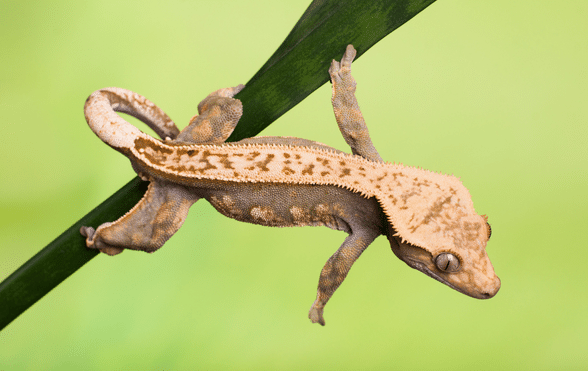
- Climbing onto your hand
- Licking or tasting
- No signs of stress
- Eating from your hand
- Exploration beside you
- Tolerating handling
- Tail behavior
- Vocalizations
FAQs
Q1: Are crested geckos child-friendly?
NO, Crested geckos can be suitable pets for families with children, but they should be handled with care, and interactions should be supervised to ensure the safety of both the gecko and the child.
Q2: Do crested geckos give a lot of attention?
No, Crested geckos are generally not attention-seeking and may not actively seek interaction. They are primarily nocturnal and maybe most active at night.
Q3: Are crested geckos hypoallergenic?
No, Crested geckos and other reptiles can potentially trigger allergies in some individuals, so it’s essential to be aware of potential allergies before bringing one into a household.
Q4: Can You Place An Adult Crested Gecko With A Baby Crested Gecko?
No, It’s not recommended to house adult crested geckos with baby geckos, as the adults may see the young geckos as competition or a potential threat. It’s best to keep them separate until the young geckos are larger and more mature
Final Words:
In conclusion, my experience with crested geckos has shown that they can be friendly and engaging reptilian companions. Their calm demeanor and relatively low-maintenance care requirements make them a great choice for those seeking a reptile friend.
However, it’s important to remember that individual personalities can vary, and patience is key when building trust and rapport with these creatures. As a responsible pet owner, I’ve found that understanding their needs and respecting their boundaries is crucial in fostering a positive and friendly relationship with these unique and captivating animals.

